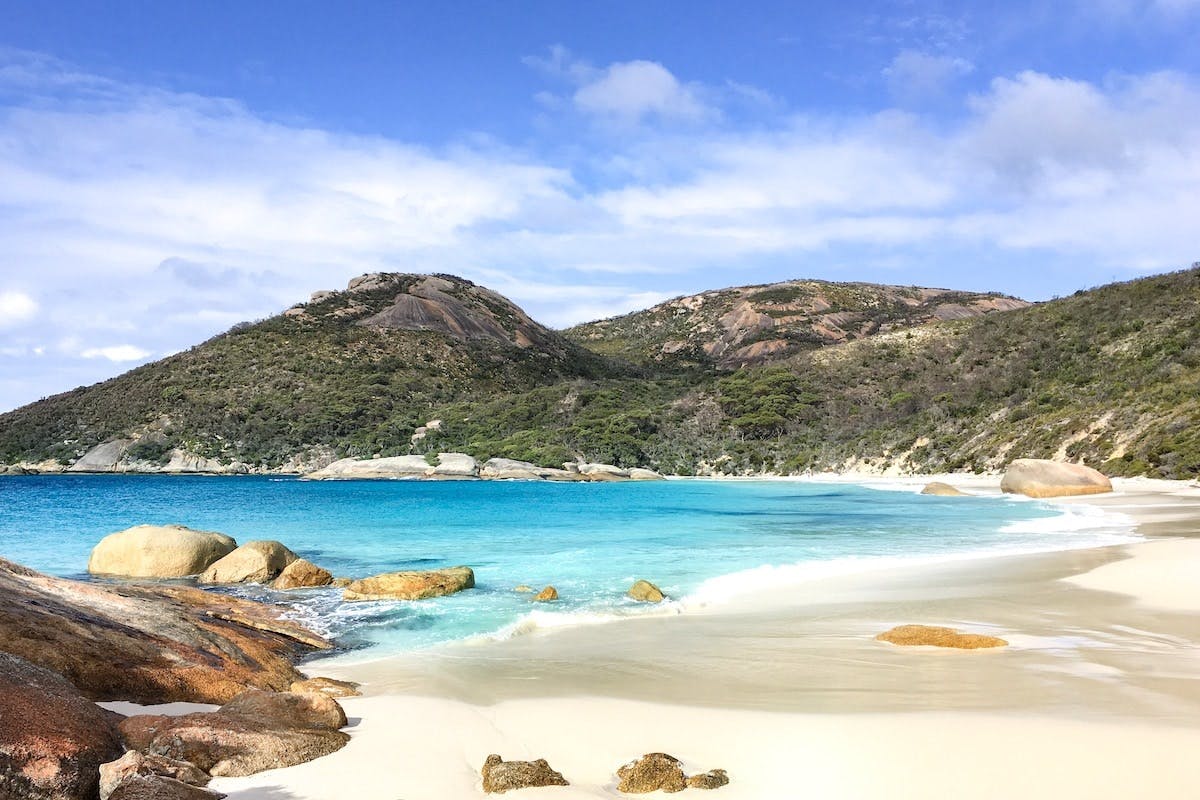Leave No Trace: A Guide To Treating Perth & WA’s Unique Environment With Respect

As our Perth Is OK! audience continues to grow, along with the people of Perth’s sense of adventure and wandering out yonder, it’s been exciting to see everyone explore all that Western Australia has to offer. Stunning hikes, wild swimming holes, world class beaches, unique landmarks… We’ve got it all in WA, and the past 12 months has seen us getting out and exploring it more than ever.
It – along with the rise of Instagram – has also seen increased pressure put on some of these places in terms of visitor numbers. We get a lot of messages from locals around some of these WA hotspots, highlighting the fact that while the intrastate tourism boom has been awesome, it’s come with consequences that arise with a lack of respect for these regions. For instance, in the past couple of weeks Dr Ross Anderson from the WA Museum has been going on local radio stations asking people to please take care while exploring the Omeo Wreck.
While this behaviour no doubt from the minority, it’s still important to acknowledge and try to improve however we can. As an outlet that celebrates all the wonderful areas of Western Australia, we also feel a duty of care to inform you lovely folks on how best to adventure around WA whilst maintaining as little impact as possible.
With that in mind we reached out to the Department of Biodiversity, Conservation and Attractions (DBCA)’s Parks & Wildlife Service to find out how we can all do better while exploring everything our great State has to offer. Turns out its a pretty simple adoption of the seven principles recommended by Leave No Trace Australia, which we’ll outline below with thanks to DBCA.
So next time you’re planning a wander out yonder (be it a short day trip or a longer holiday), have a little gander at those principles and do your bit to keep the environment – and locals – happy to see you:
Plan ahead and prepare
Any time you set sail for a new destination, it’s important to check in with Explore Parks WA, Park Alerts and the Department of Fire & Emergency Services to make sure it’s safe and legal to do so.
Travel and camp on durable services
It can be tempting to just drive, park up and camp wherever, but by sticking to marked roads and bays you reduce things like soil compaction and erosion, along with loss of vegetation.
Dispose of waste properly
Something we’ve noticed a heap in our research and while exploring is the amount of rubbish left behind in some beautiful places. A lot of remote places have far less amenities than we’re used to including obviously, bins, but that doesn’t mean you can just dump it on the ground. Chuck it in your bags/car and take it with you until you find a suitable disposal site.
Leave what you find
Collecting things like firewood, dead-wood, leaves and other kinds of vegetation is not permitted.
Minimise campfire impacts
While campfires are permitted at some campgrounds inside designated, it’s only allowed at certain times of the year, and in some campgrounds it’s never permitted.
Respect wildlife
Never feed or touch wildlife, and if you’ve got a dog you can check ahead to see if you’re allowed to bring it via this map.
Be considerate of hosts and other visitors
Portable speakers have risen in popularity over the past few years, but that doesn’t just mean you should blare it all day and night – take note of your surroundings, read the room and think about others around you when cranking your latest playlist.
Subscribe to our free newsletter!
The Conservation And Land Management Act (CALM) addresses this with a number of regulations on behaviour and conduct, stating that on CALM land a person must not:
(a) create or commit any nuisance; or
(b) behave in a disorderly or offensive manner; or
(c) use abusive, offensive or insulting language; or
(d) otherwise act in such a way as to cause or be likely to cause a nuisance or annoyance to other persons on the land.
–
Along with these seven principles, it’s also vitally important to think about your own safety when exploring places. Some of them can be incredibly dangerous in the wrong conditions and when not enough care is given to your own person. Last year alone popular Instagram spot Injidup spa tragically claimed two lives in separate accidents after they were swept off the rocks into rough seas.
What we’ve got in WA is pretty damn special if you ask us, let’s all work together to keep it that way!